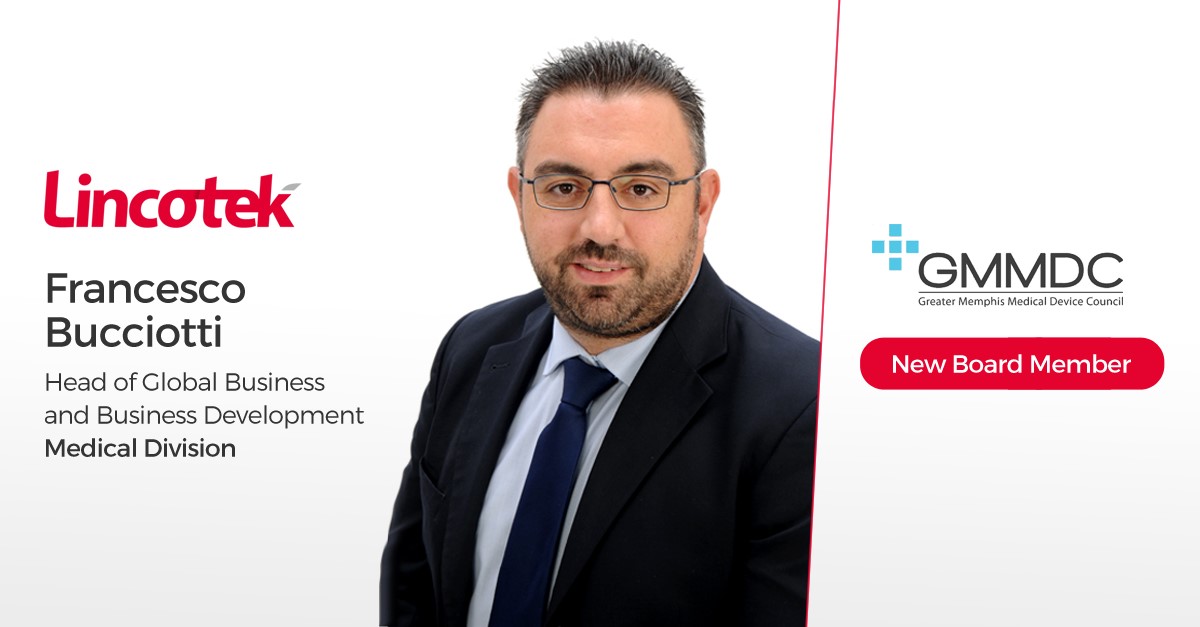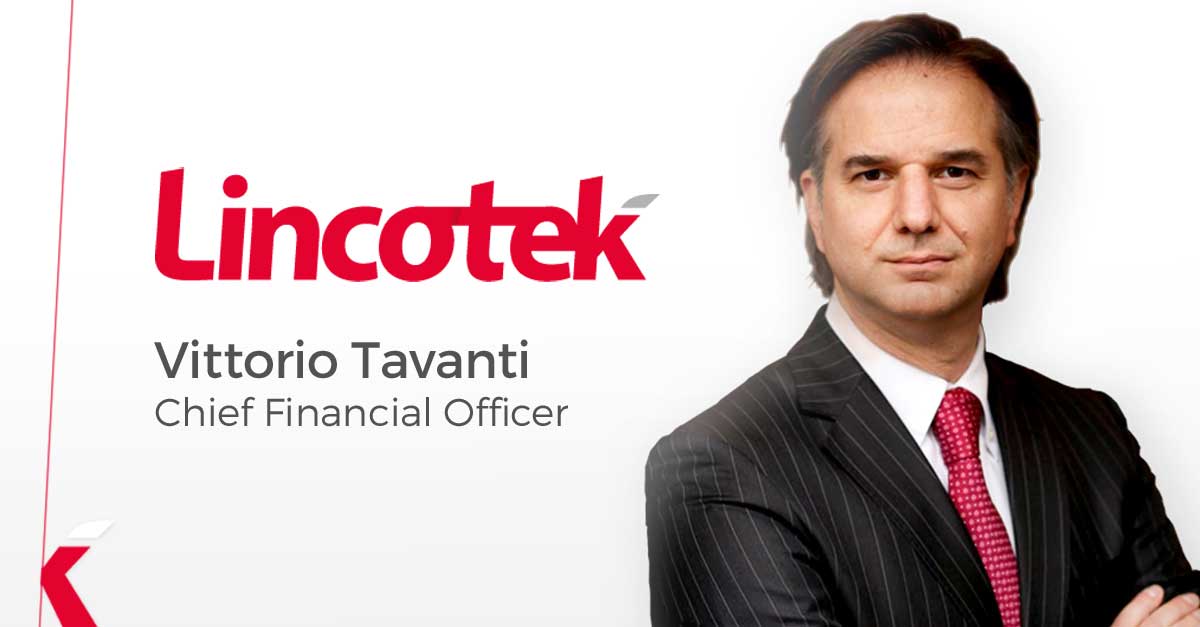Sixth annual awards ceremony of the Best Managed Companies Award from Deloitte Private.
Lincotek among the 79 awarded for ‘Made in Italy Excellence’
Lincotek has been named among the winners of the Best Managed Companies Award for the fourth consecutive year. The prize for Made in Italy Entrepreneurial Excellence is sponsored by Deloitte Private, with the participation of ALTIS – Graduate School of Sustainable Management at the Università Cattolica del Sacro Cuore, ELITE-Euronext Group and Confindustria’s Small Enterprise division
Deloitte Private presents the winners of the sixth “Best Managed Companies” Award
- In 2023, 79 companies were granted the “Best Managed Companies” (BMC) award by Deloitte Private.
- These BMCs are spread from the North to the South, with the highest concentration in Lombardy (29% of the total), Emilia-Romagna (20%), and Veneto (13%).
- 51% of the BMCs belong to the manufacturing sector, and 52% of them expect a revenue growth of over 10% in the coming year.
- Half of these companies are family-owned; 1 out of 4 have participated in the ELITE- Euronext Group programme; one out of 10 is listed on the stock exchange and 18% of them are partially owned by a Private Equity fund.
Milan, 30th October – Recognizing entrepreneurial excellence in the national arena and fostering a structured, long-term growth path. This is the ambition behind the creation of the “Best Managed Companies” Award. This afternoon, the award ceremony for the sixth edition will take place at Palazzo Mezzanotte, the headquarters of Borsa Italiana ELITE– Euronext Group. During the Deloitte Private event, with the participation of ALTIS – Graduate School of Sustainable Management at the Università Cattolica del Sacro Cuore, ELITE-Euronext Group and Confindustria’s Small Enterprise division, the Best Managed Companies Award will be presented to 79 Italian companies.
«Now in its sixth edition, the award represents not only recognition for Italian entrepreneurial excellence in what has already been accomplished but also a genuine long-term growth program. Participating companies are guided by Deloitte experts in a journey that further stimulates their development and enhancement according to fundamental success parameters of the Award, which are crucial for effective business management. This journey becomes virtuous and long-lasting, as shown by the fact that over 80% of the companies have won in more than one edition, and 7 companies are even in their sixth consecutive year of recognition», comments Ernesto Lanzillo, Deloitte Partner and Leader of Deloitte Private for the Central Mediterranean area (Italy, Greece, and Malta).
Evaluated on the basis of criteria such as “Strategy,” “Skills and Innovation,” “Commitment and Company Culture,” “Governance and Performance Measurement,” “Corporate Social Responsibility,” and “Internationalization and Supply Chain,” this year’s companies were selected by a panel of experts, including: Fabio Antoldi, professor of Corporate Strategy at ALTIS Università Cattolica del Sacro Cuore; Renato Goretta, member of the National Presidency Council of Confindustria’s Small Enterprise division; Marta Testi, CEO of ELITE-Euronext Group.
«In this sixth edition, no less than 79 Italian companies received the BMC Award, thanks to their excellent management abilities in a complex international scenario», says Andrea Restelli, Deloitte Partner in charge of the Best Managed Companies programme in Italy. «Today, more than ever, organizations and their leaders must be prepared to overcome numerous challenges and remain competitive and attractive in the market, by leveraging the right resources, skills and investments while paying attention to the talents within the company», adds Restelli.
Profile of the Best Managed Companies
The geographic distribution of this year’s 79 Best Managed Companies is 38% in the Northwest, 35% in the Northeast, 18% in the Central region and 8% in the South of Italy. The top three regions of entrepreneurial excellence are Lombardy, where 29% of the BMCs are located, Emilia-Romagna, home to 20% of the awardees, and Veneto, where 13% of the companies are headquartered.
More than half, 51%, belong to the manufacturing sector, followed at some distance by the service sectors (14%), the supply of electricity, gas, steam, and air conditioning (6%), trade (5%), and construction (5%). There are also a smaller number of companies engaged in healthcare and social assistance (4%), transportation and warehousing (4%), professional, scientific, and technical activities (3%), and agriculture, forestry, and fishing (3%). The least represented sectors – each accounting for only 1% of the BMCs – include Defense, information and communication services, education, and water supply. 52% of the BMCs have between 50 and 249 employees, while those with over 250 employees make up 43%; in the remaining companies, the workforce consists of between 10 and 49 employees (4%) or less than 10 (1%).
Half of the BMCs are family-owned, and 39% have participated in the ELITE-Euronext Group programme. 18% are partially owned by a Private Equity fund and one in 10 is listed on the stock exchange, with 75% on AIM and 25% on STAR. Interviews with the Best Managed Companies reveal that 1 out of 2 firms expect their revenue to grow by over 10% in the next year, and 2 out of 3 feel very confident about their success over the next 2 years.
Criteria for evaluation of Best Managed Companies
«The winners have demonstrated excellent managerial capabilities, showing that they place great value on their people and on corporate culture, which can reward virtuous behavior», states Restelli. «Having well-trained, motivated employees, along with capable leaders who can identify and nurture available talent, contributes to the overall growth of the company» emphasizes Restelli.
«Combining virtuous performance on the pillars explored by the BMC with the ability to attract and retain talent contributes to the placement achieved by the awarded companies and their interest in building and strengthening an organizational culture in line with corporate expectations and the desires of new generations, upon which to base their competitive advantage and their longevity», concludes Lanzillo.
Strategy – When asked about the key differentiating factors of their corporate strategy, BMC leaders stressed the importance of investing in technology and innovation (82%) and spreading a corporate culture throughout all levels of the organization (81%), with 74% mentioning strong employee engagement and commitment. These elements can enable companies to continue growing successfully while facing future challenges. Among these, BMCs give priority to the challenge of selecting, hiring, and subsequently retaining talent (74%), with nearly 6 out of 10 also mentioning the need to strengthen their corporate culture in line with their mission (58%). In addition to these, BMC leaders indicate as priority challenges the development of management (65%) and the development of new products and services (60%).
Nearly all of the companies (97%) stated that in order to operate in the new competitive landscape and address future challenges, they place at the top of their agenda the enhancement of human resources, in terms of reskilling and upskilling, with nearly 8 out of 10 (77%) citing the availability of talents with the right skills as the primary factor in the next 5 years.
Skills and Innovation – To improve productivity, BMCs declare that they primarily invest in technology (90%), innovation (86%), and organizational structure (81%). Emphasizing the importance of talent, the leaders interviewed stated that they also direct these investments toward expanding their workforce by bringing new people into the company (65%). In line with this, about 6 out of 10 have indicated that their innovative efforts in the past year have been focused on improving the Talent Management system, closely following more traditional areas of funding such as R&D (88%), operations (71%), and marketing (62%). Among investments in a strictly technological area, over the next 12 months, BMC executives believe they are more likely to allocate resources to data analytics and business intelligence solutions (83%), CRM (66%), and process automation (65%). Moreover, the majority of companies (84%) have implemented a formal process for continuing to encourage new business ideas.
Commitment and Corporate Culture – One of the most important elements for entrepreneurial success is corporate culture: 96% of respondents are convinced that this is the basis for the ultimate success of the business. Most of the BMCs state that the development of employee skills is a strategic priority and devote attention to a variety of measures designed to assess and reward talent. For evaluation, BMCs primarily focus on creating a structured, formalized process for employee performance review (73%) – conducted at least once a year in 42% of cases; nearly one in two BMCs (47%) also state that they carry out surveys aimed at measuring employee satisfaction. To reward and motivate their employees, almost all BMCs offer more enticing compensation packages, which include recognition of variable components and bonuses (96%), additional benefits such as access to a company car (96%), compensation and reward systems (77%), or corporate welfare programs (69%). These measures are complemented by various activities aimed at engaging employees and maintaining a high level of commitment, such as training organized by functional areas (95%), team-building activities (71%), or events dedicated to them (66%). Additionally, nearly all of them claim to promote a corporate culture based on open and transparent communication that enables them to attract and retain talent (91%).
Governance and Performance Measurement – In BMCs, satisfaction with the effectiveness of governance and the internal financial reporting system is high. Formal meetings are the instrument that leaders use most frequently (86%) to share decisions made by management.
Regarding performance, the main factors that BMCs identify as threats to the company’s growth in the next 12 months are the increase in raw material costs (59%) and the ability to hire and retain talent (49%).
Furthermore, even though only half of BMCs declare themselves to be at least moderately risk-tolerant (52%), in the current scenario, enterprise risk management is recognized as more crucial than ever. To this end, 97% aim to maintain a strong balance sheet alongside developing solid relationships with stakeholders to ensure financial stability and 81% look to an effective financial management process to mitigate risk.
Corporate Social Responsibility – Sustainability is considered by BMCs to be the most important element for the success of their organization, as stated by 98% of the sample; also, more than 7 out of 10 companies emphasize the theme of Diversity & Inclusion. Corporate Social Responsibility is deemed “very important” by 36% of the companies and even “fundamental” by 56%. To measure and reduce their social and environmental impact, 51% commit to providing sustainability information on their company’s website and 49% produce a sustainability report.
Internationalization and Supply Chain – The majority of BMCs (54%) primarily operate in Italy, and a quarter declare that they export to Europe. About half of the BMCs rarely or never look abroad for activities such as localizing operations (53%), sales development (45%), and sourcing new talent (45%). A similar approach, though less pronounced, is observed for collaborations with foreign suppliers (sought rarely or never by 25%) and with other companies for strategic agreements (23%). When considering entry into foreign markets, for 7 out of 10 BMCs their internationalization strategy is direct export. Other solutions include direct investment (40%), indirect export through export consortia, trading companies, buyers, and importers (39%), and strategic agreements such as Joint Ventures, Licensing, and Franchising (34%).
About half of the BMCs belong to at least one supply chain (35% to only one and 14% to more than one), while an additional 4% are considering entry. Regarding the type, most fall into agri-food supply chains (26%), energy (16%), industrial (16%), or technology (11%). According to BMCs, membership in a supply chain ensures a multitude of benefits, including strengthening their reputation within the community where the company operates (83%), enhancing competitiveness (71%) and accelerating technology transfer processes (57%). Among other benefits, 29% also highlight improvement in working conditions, in employee competencies and in the ability to acquire new talent.





